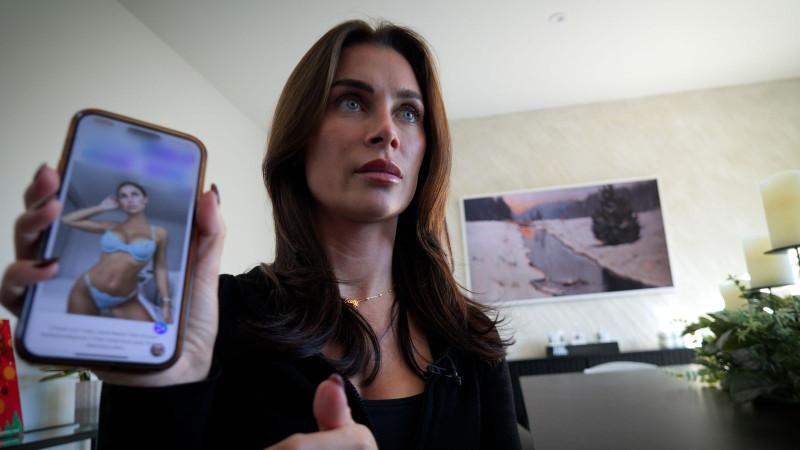
Newsroom
Organizations and internet safety experts are raising alarms over the increasing use of artificial intelligence (AI) to create realistic but fake nude images of real women. This disturbing trend is becoming "normalized" as it largely evades legal oversight.
Deep fake pornographic images are causing particular concern in schools. A recent study by Internet Matters revealed that 13% of teenagers have encountered nude deep fakes. The UK's National Society for the Prevention of Cruelty to Children (NSPCC) told Sky News that "a new harm is emerging."
What two victims report
Sky News interviewed two victims of this growing phenomenon. Both women shared their harrowing experiences and called for stronger legal protections.
Earlier this year, 33-year-old influencer and former reality TV contestant Callie Jane was horrified to discover that someone had used AI to transform a lingerie advertisement photo of her into a completely nude image, which was then circulated online.
"It looked so realistic that no one but me would have known it wasn’t real. It was like seeing myself (naked), but it wasn’t me," she said.
When Callie reported the incident to the police, she tried to have it classified as a crime. "They didn’t really know what they could do about it, and since the website hosting the image was international, they said it was outside their jurisdiction," she explained.
Another victim, "Jodie" (not her real name), from Cambridge, also fell prey to deep fake pornography.
Jodie received an anonymous email informing her that she appeared in a sex video on a pornographic website.
"The images I posted on Instagram and Facebook, which were fully clothed, had been manipulated and turned into sexual content," she said.
Jodie grew suspicious that the perpetrator was someone she knew. She discovered that this individual had been posting her photos online and encouraging others to alter them.
Her investigation led her to a specific photo taken outside King’s College in Cambridge, a picture that only one person—her best friend, Alex Wolfe—had access to.
Wolfe, who had previously been recognized as the BBC’s Young Composer of the Year, was later convicted of offenses against 15 women, thanks largely to Jodie’s persistence.
Despite his conviction, the charges only covered the offensive comments attached to the manipulated images. In the UK, while it is illegal to share such images, it is not currently a crime to solicit others to create them.
Source: skainews.gr































